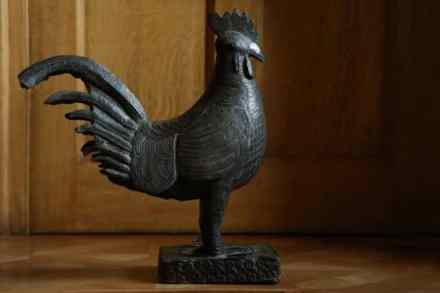Why Jesus College shouldn’t have returned its Benin bronze
Jesus College Cambridge can claim a world first. It is the first institution, at least in the twenty-first century, to return a so-called Benin Bronze because it was looted in a British punitive raid in 1897 on the historic Kingdom of Benin, now part of the territory of Nigeria. The College’s Master Sonita Alleyne has today handed over its Okukor – a brass statue of a cockerel that took pride of place in the college’s dining hall peering over generations of students – to Nigeria’s National Commission for Museums and Monuments. Germany announced in May that its public museums would return their hundreds of Benin artefacts; Dan Hicks — Curator




















